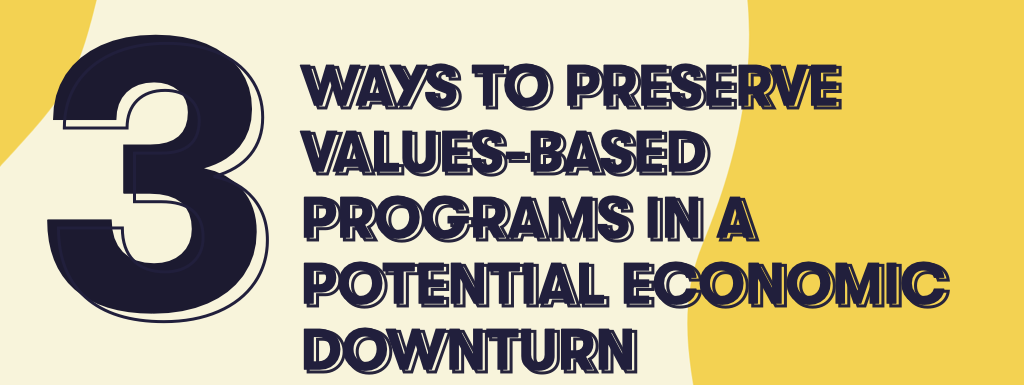Every year, I write a blog on Givsly’s anniversary. However, as we approached our four year anniversary I struggled to articulate what I wanted to say. The last quarter of 2022 brought a lot of uncertainty with the potential economic downturn. It seems like every week a different company announces major layoffs and I did not know how this would affect our own business. Luckily, as 2022 wrapped up, we saw even more acceleration of our business with clients continuing to lean into our vision to merge purpose with business performance.
While Givsly continues to grow, we have seen other companies in our space not be so lucky. When speaking with several purpose-led individuals whose companies focus on DE&I and driving company values, they are feeling the impact of tighter budgets. Some question if they will be able to survive a year where companies say they “do not have the budget” to focus on programs like DE&I, employee mental health and more. My gut tells me that an economic downturn will reveal the companies that understand the importance of values in their organization from the others who just check the box.
With Givsly’s four year Anniversary today, I decided to utilize this year’s blog as a place to provide my thoughts on how companies should continue to preserve their values-based programs throughout a tough economic year. I’ve said this many times over the last few months that a company’s values based programs should never be impacted by an economic downturn. If they are, then your company values are probably not really that strong or even existent.
- A company’s values should reside in the marketing department. I am of the belief that marketing is the department to implement values-driven programs across an organization. They are the ones to represent those values to the public and track the ROI of these programs. While I understand that purpose also helps drive employee retention and other internal metrics, HR or even CSR departments should not be the only department to lead these efforts. They do not get sufficient budgets to do so and they are not inherently trained to track ROI at the level of marketing. Marketing has more impactful budgets and can prove the value to the business. When marketers can tie values-based programs to revenue driven, executives will see the positive impact to the business and community and approve larger budgets.
- Scale back other initiatives so you don’t abandon your values-based programs. As the week of CES got underway, it was interesting for me to see companies with elaborate suites and event booths that previously told me in 2022 that they “did not have a budget for values-based programs.” As a former sales leader, I have attended CES many times. I’ve been with a company that had elaborate suites and private dinners and I’ve been with a company that only sat at the Chandelier bar all week to network. The ROI from both experiences was the same. I don’t bring this up to bash industry events like CES, rather to point out that when budgets are tight you can be more efficient with your strategy so that you do not need to cut your corporate values. Clients may not remember how big your yacht was, but they will remember if you gave up on your values for that yacht.
- Merge values focused goals with sales ROI goals. The first purpose based experience I ever went to was something that my marketing team decided for me and my sales team. We took one of our brand clients to volunteer and candidly I did not want to go. As it turns out, it became the experience that led me to start Givsly. I had never connected with clients on such a strong human level before which led to a stronger relationship and business for the company. We see this same experience happen all the time for our partners with Givsly Programming. Your sales team may not get it at first, but after they experience it they will ask for more opportunities like it. It’s up to marketing to align corporate values to how you generate demand, and sales will follow.
People often say that running Givsly must be so rewarding. I always say that you see the best of companies and the worst of companies. While the last few months have been challenging for a lot of companies in our space, I am eager to see what this year will bring. I think it will be the year that shows which companies really do value purpose within their DNA and which companies are performative and cut it out.
Which organization will you choose to be?

